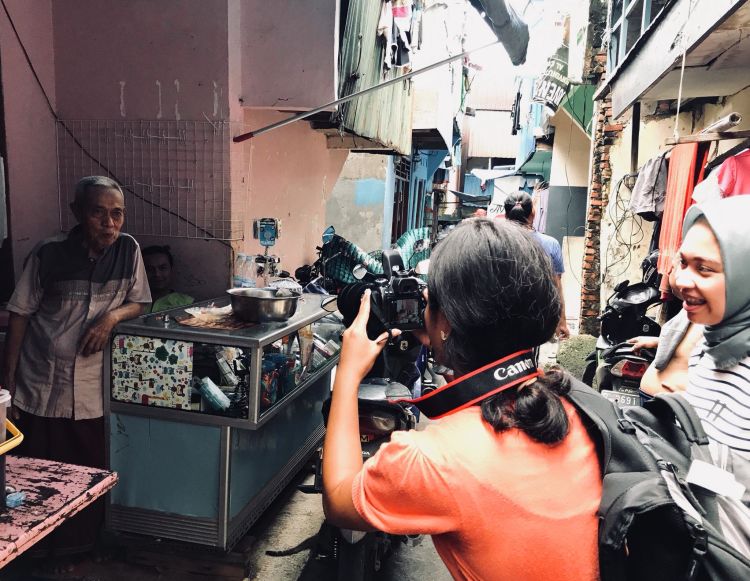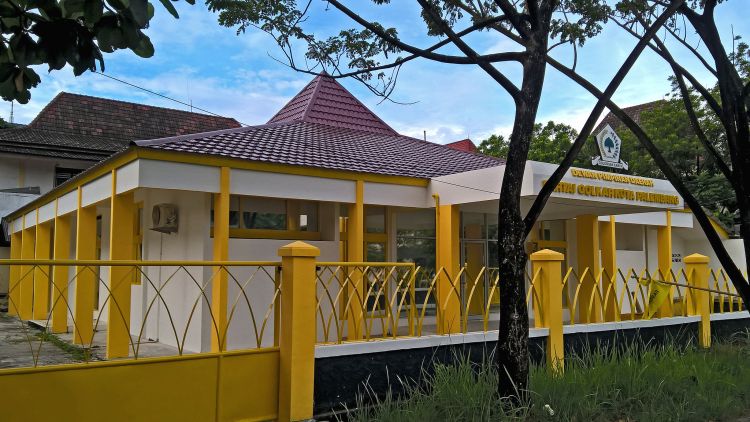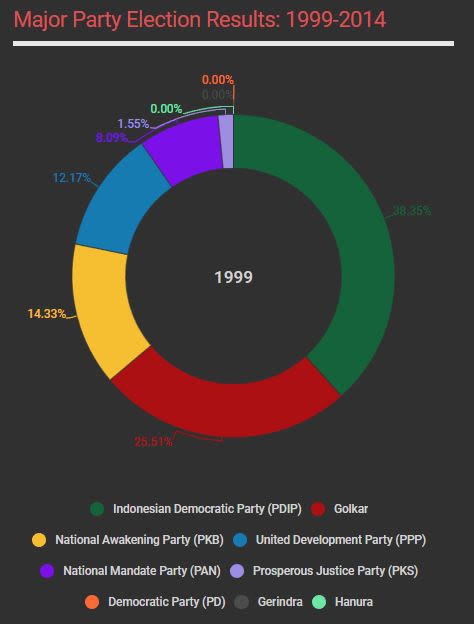THE IRON WING
An Indonesian Political Firestorm

You may not be interested in politics, but politics will certainly be interested in you.

This is the message that has conflagrated the iron forefront of the 2019 Indonesian Presidential and Legislative Elections.
In both the Indonesian political arena and public sphere, the issue of grappling with falling numbers of citizen engagement lies ahead.
Both elections are set to face a major test of gaining youth support, haunted by a plethora of financial scandals and abuse of power disclosures.
What might be one of the nation’s largest case of public malfeasance from an iron wing of politicians meant to embody the nation's philosophy of glory and honour - has only further divided the nation and her people.
In late 2011, the government introduced an electronic version of their mandatory identification cards, e-KTP (KTP elektronik).
Its purpose was to reform the formation of citizenship identification, by obstructing illegal efforts of duplication and consumer fraud.
What was meant to be a data system improvement, became one of the country’s largest corruption scandals with a staggering state loss of approximately US $170 million public funding extorted by high profile bureaucrats and cabinet ministers.
It was thought that the downfall of the long-standing autocrat Suharto in 1998 first brought an end to a culture of nepotism and graft.
Two decades later, 190 million voters of the world’s third-largest democracy have been asked to choose from a crowd of candidates who began their political careers during that period.
Now a political firestorm, the grafting case has led to many young Indonesians to protest against voting in next year’s elections.
In the past year, their voices have only just begun to erupt.
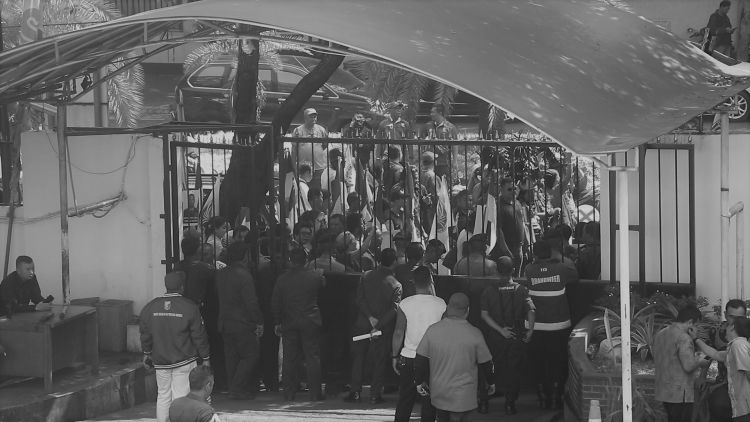
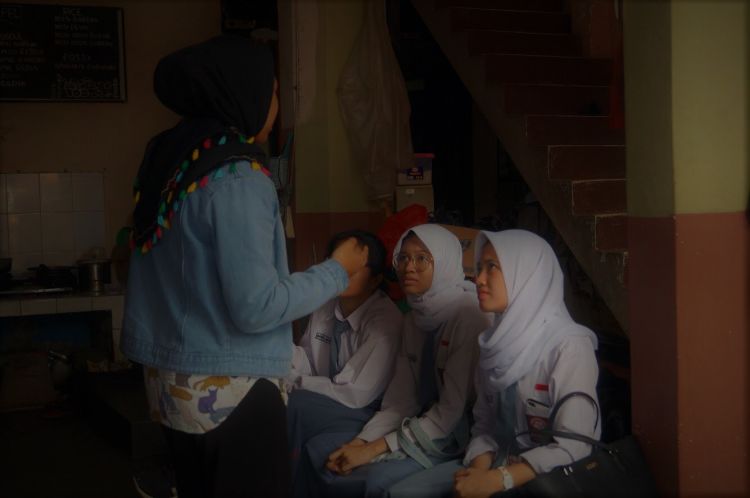
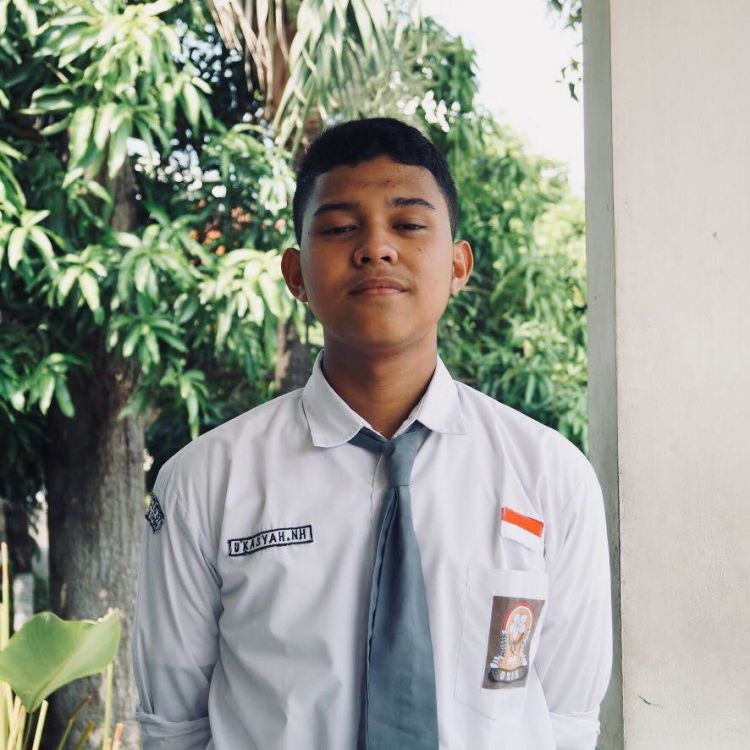
Photo: High school student, Ukasya.
Photo: High school student, Ukasya.
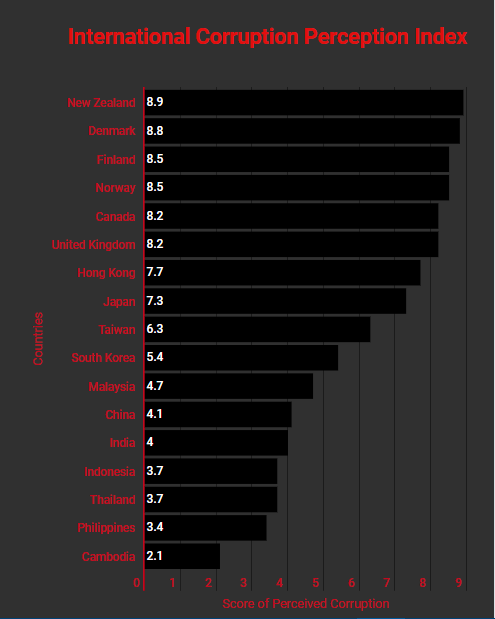
Source: Transparency International
Source: Transparency International
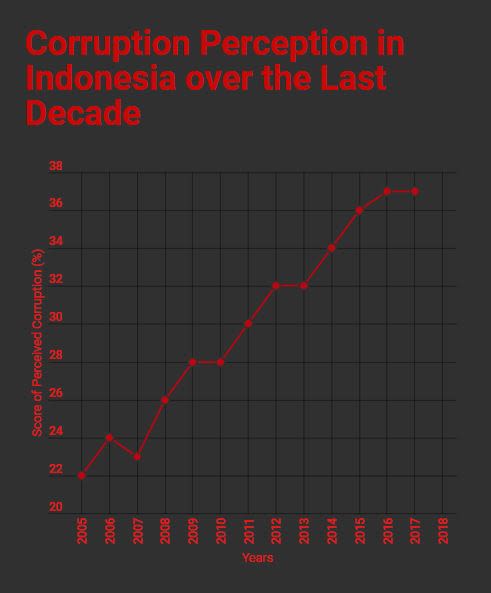
Source: Transparency International
Source: Transparency International
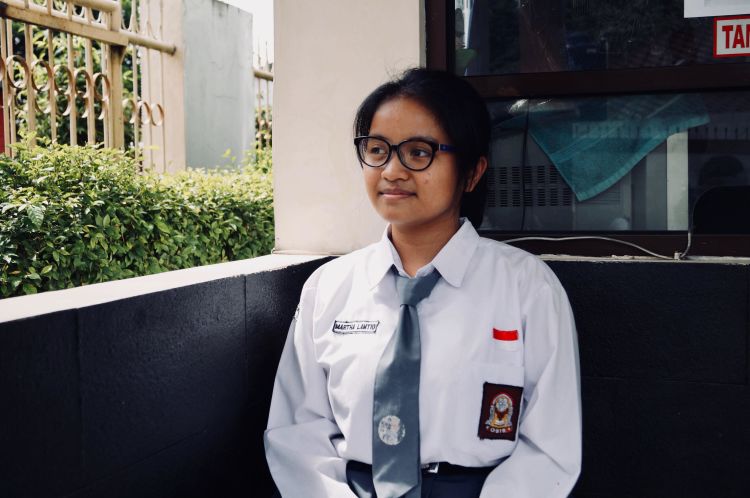
Photo: High school student, Martha.
Photo: High school student, Martha.
One of these voters is Ukasya, a senior high school student who questions the virtues of elected officials, and their actions towards the people they are meant to govern.
“For me, the criteria for a leader is the one who can communicate his regulations. So there will be no miscommunications between the government, organizing party, and the society,” Mr Ukasya said.
“Second of course is one who is honest and responsible for the regulations he has made.”
“Of course it’s a classic wish for Indonesian citizens, but what can I say? It is required from a leader,” he said.
Ukasya’s words highlight the need to examine political morality, whereby in such a context has forced the concept of an effective governance to confront an increase of public skepticism of its dynamics.
The major consequence at hand that is circling upcoming political candidates, is that their methods of political compromise and concession will be severely questioned by the emerging generation.
The importance of politics is thus, not just within the government as a whole but how an elected individual socially interacts.
According to Transparency International, this latest corruption scandal is set to affect the Indonesian public’s perception of corruption by 12.5 per cent.
From the province of West Java, Martha is another final high school year student still considering whether to vote in the first round of the regional elections.
“I actually don’t really go into politics but about e-KTP…I think the KPK (Corruption Eradication Commission) already did a great job,” Ms Martha said.
“I think the one who must get the blame is the corruptor, not our system of governmental officials.”
“It’s the person I think, not the institution,” she said.
Since its conception in 1964, the Golkar party and its foundations arose from the era of President Suharto (1967-98) and evolved to become one of the nation’s longest standing powers which dominated military support and media presence.
However, the party now faces an immense test of renewing its reputation after the sentencing of their chairman, Setya Novanto to 15 years in jail for his role in extorting US $7.3 million from public e-KTP funds.
Golkar Spokesperson Suwito said that despite Novanto’s charges being a blow to the party, Golkar’s preparation for the 2019 Elections would heavily focus upon gaining support of the younger generation through a new cohort of candidates.
GOLKAR
1. Origins
The Golkar Party is Indonesia's longest-standing party, founded under the rule of Indonesia's second President, Suharto. The party is now under the allegiance to current President Joko Widodo's (Left) government.
2. Malfeasance
Former speaker of Parliament and chairman of Golkar, Setya Novanto (Below right) has been sentenced to 15 years in jail following his role in stealing an estimated US $170m from public e-KTP funds.
3. Reform
Below: Golkar's recently reformed merchandise shop. The party is aiming to regain as many young supporters as it can by holding a number of events such as: Car Free Day, exercise activities and community service.
The party has denied any accusations it knew of the internal dynamics of corruption concerning its politicians.
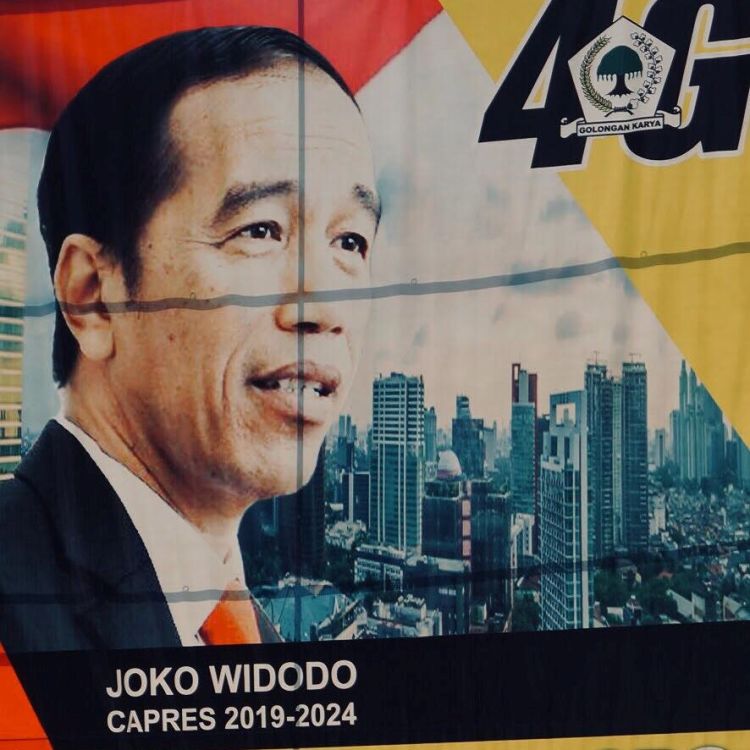
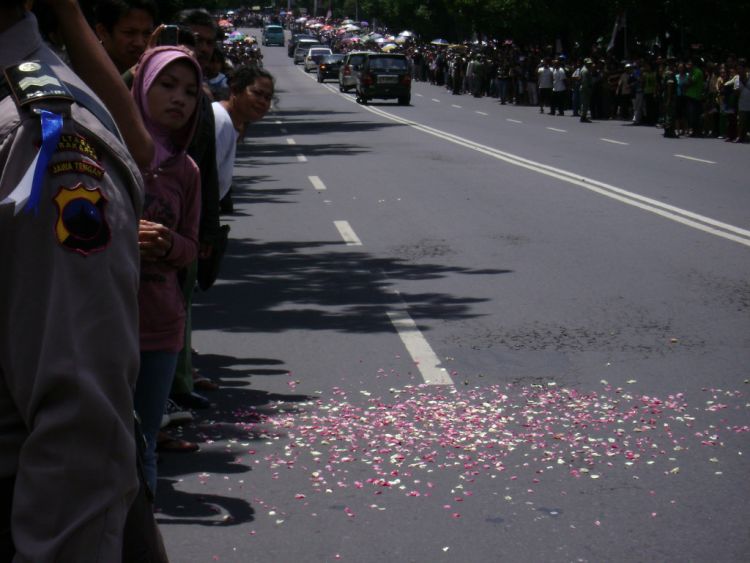
“Recently Golkar has just held an orientation for our new legislative candidates, consisting of 60 per cent of them being young people holding a minimum of a Bachelor’s degree,” Mr Suwito said.
“It [the charges against [Novanto] could affect citizens, but what of it? When Novanto became our party leader, the electability decreased from 14 to 8 per cent.”
“When we relieved him of his duties and replaced him with Airlangga Hartarto [Current Chairman], our electability increased. If I’m not mistaken, Golkar’s current electability is 14.6 per cent,” he said.
As one of the older political parties remaining in the Indonesian parliament, the organisation maintains that liberals, conservatives and those who are centralised on the political spectrum are all serving the interests of rival elites; most people themselves act more like politicians than they would like to think.
Inherently, Golkar’s rule of thumb is that the best politicians are well sensitised to the shifting moral context when moving from the public eye to the private arena of parliament.
“It [the charges against [Novanto] could affect citizens, but what of it? When Novanto became our party leader, the electability decreased from 14 to 8 per cent.” - Suwito, Golkar Spokesperson
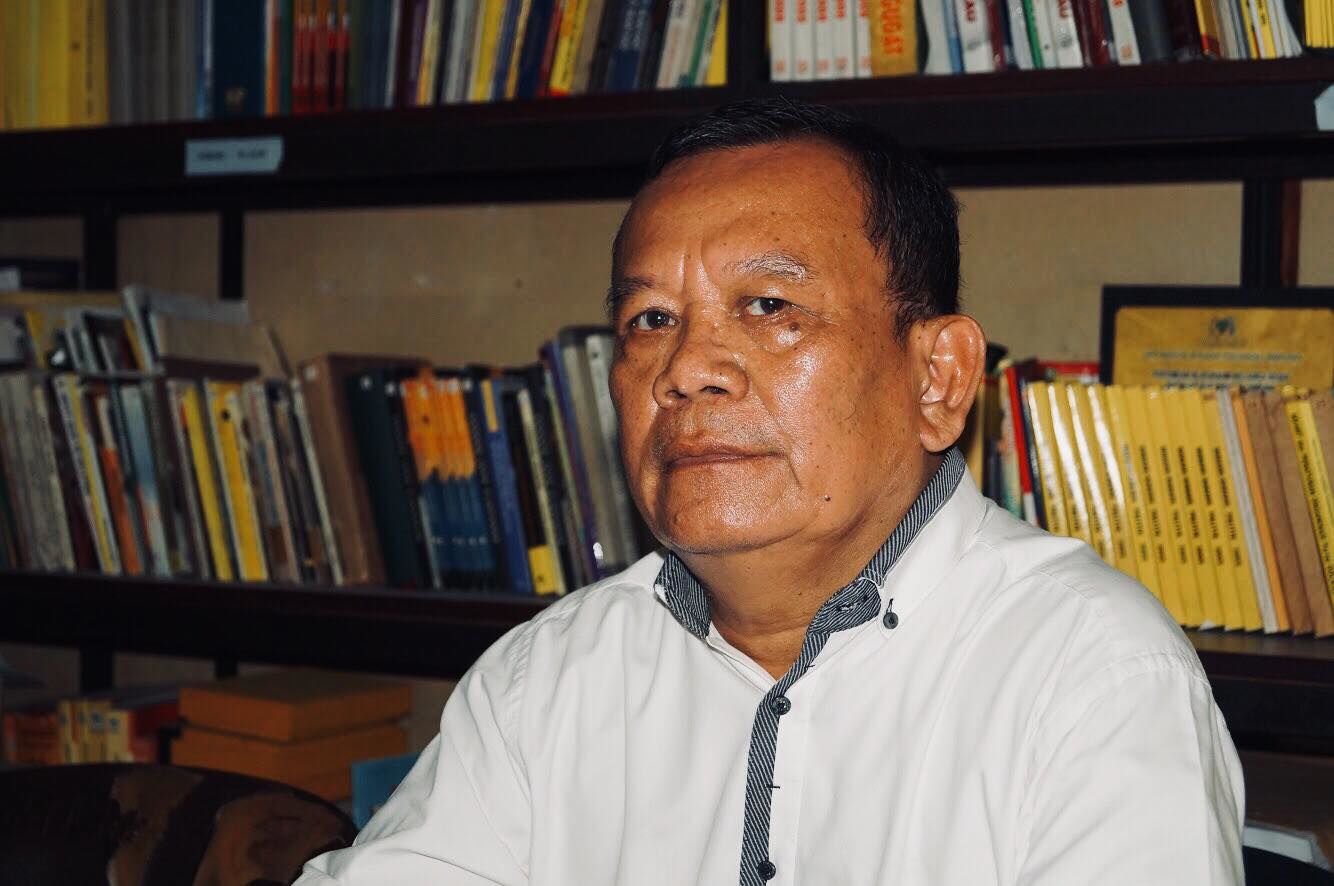
“We internalise our representatives to avoid corruption and have high integrity, by having all delegates sign our Pakta Integritas (Personal Integrity) document which educates them about our country’s fundamentals and purpose,” Mr Suwito said.
“Our organisation has taken measures to prevent such things [Novanto’s role in the grafting scandal] from happening again, such as not receiving a bribe for pure gratification.”
“If in future there is a politician who is found to be corrupt, it’s personal. And we will discharge them,” he said.
In the offices of the Indonesian Solidarity Party (PSI), each member is dressed in jeans and is also below the age of 50.
Dubbed as the ‘party for millennials’, PSI focuses on pluralism and a high-integration of Indonesia youth in politics, in the hopes to reshape the culture of divisive identity politics of the ruling elite.
The party is one of four new parties the General Election Commission (KPU) is allowing to compete, rapidly rising in popularity and garnering 0.4 per cent of public support votes by mid-2017.
Secretary-General and former University of Queensland Alumnus Raja Juli Antoni said an issue was ‘Politik Gerontokrasi’, an idea that the main political parties were ‘aging’ and needed to make way for the ‘new parties’.
“All of them [Indonesia’s political leaders] are in their 40s when they become our country’s leaders. Why? We need rejuvenation. So that young people, who take up about 50 to 60 per cent in the society can determine Indonesian political life,” Mr Antoni said.
“But again, the problem is these young people are only objects used to benefit certain political interest, political exploitation. They are never the subject.”
“That’s when PSI enters. We are here with an idea that young people have to be the subject in politics, not the ones led, but the ones who lead,” he said.
PSI
1. Emergence
Dubbed the new "Millennial Party", PSI has emerged rapidly into the Indonesian political sphere with the goal of reforming the government entirely. All members are below the age of 50 and wear casual attire to work.
2. Popularity
One of five new political parties set to compete in the election next year, PSI has gained over 0.4% of public votes by mid-2017.
3. Opposing Oligarchy
The party believes that youth possesses knowledge relevant to areas of the current era, where older Indonesians may lack concerning the current direction of Indonesia.

The core message of PSI is to not simply increase youth political participation but to awaken a consciousness that can question an agent of power concerning the people it is meant to be governing.
Young people who are apathetic towards politics are the most impressionable to false promises and empty manifestos, simply because they have no political immune system.
Mr Antoni said that if young people were disappointed with the e-KTP matter, to then look for parties with credibility who could serve citizens far better than the current governance.
“The problem with our nation is not that we lack in the number of good people, but we lack in good people who want to participate in politics," Mr Antoni said.
“It’s up to us whether we’d vote and who we are going to vote [for]. Aren’t you bored that once a week there’s a governor or regent who got caught?”
“I often say, not once that we breathe, from waking up to sleep again, that we are separated from politics," he said.
“The problem with our nation is not that we lack in the number of good people, but we lack in good people who want to participate in politics." - Raja Juli Antoni
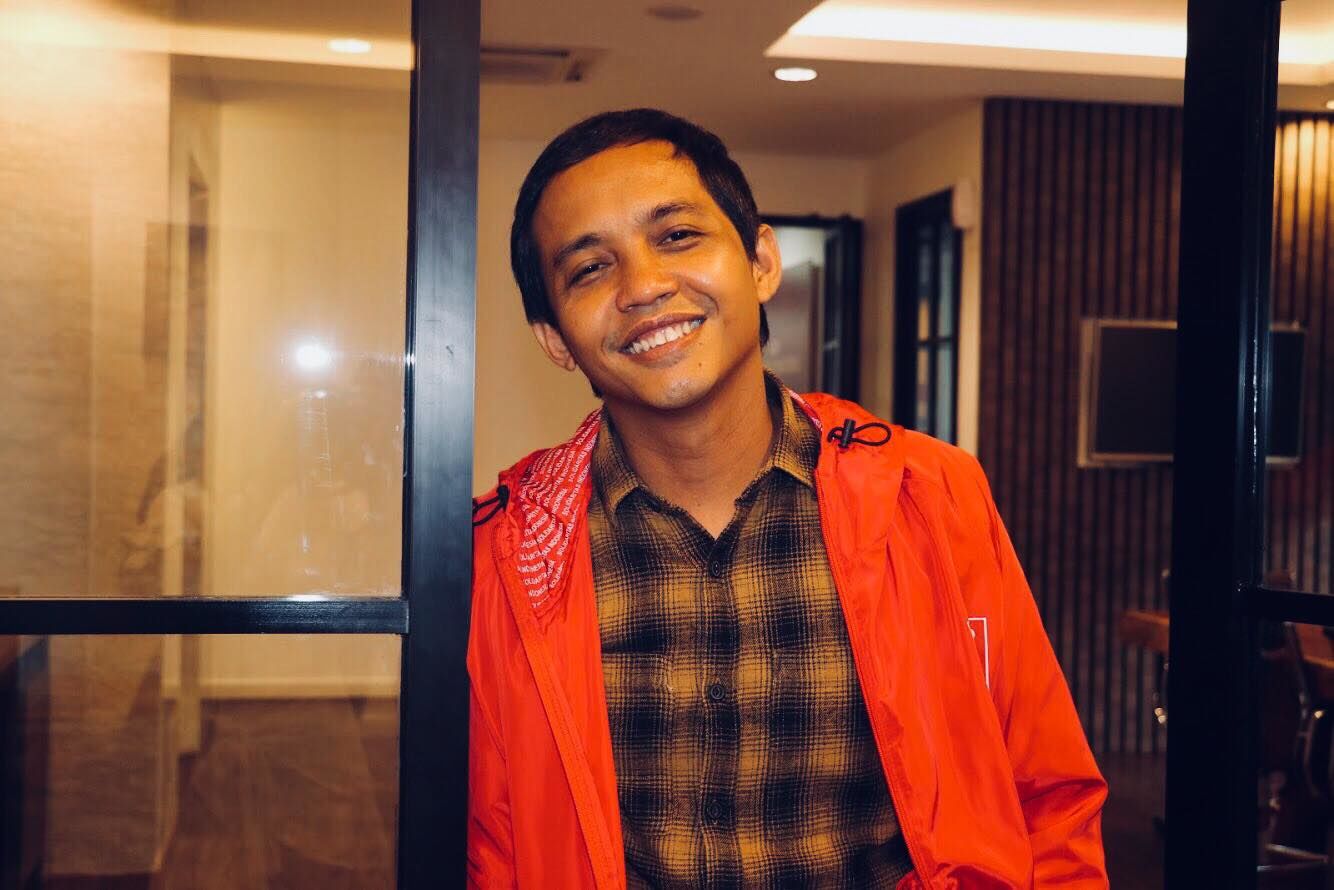
University of Indonesia Communications Lecturer, Ade Armando, echoed similar sentiments and said that whilst all individuals have a right to vote or not vote, the very right to vote was a privilege younger generations should not take lightly.
Elections are part of every democracy; disappointment at the outcome is unavoidable but preventative.
“What they choose to do on that day [Election Day], will affect what will happen in this country and the future social, cultural and economic conditions they are going to face,” Mr Armando said.
“If you think that both of them [candidates] suck, then so be it – you don’t have to choose. But at least make a decision in a mature and wise way, and because you have to think first of the condition of your country.”
“This current condition in Indonesia was not given, it was fought over and we had to struggle to reach what we call a democracy today,” he said.
However, the true bird's eye of the nation is the General Elections Commission (KPU), overseeing which political parties may compete in the elections according to their political dynamics and responses to public discernment.
In a press conference during late April this year, the body revealed that the e-KTP issue had made it increasingly difficult for parties to receive reciprocated engagement from young Indonesians.
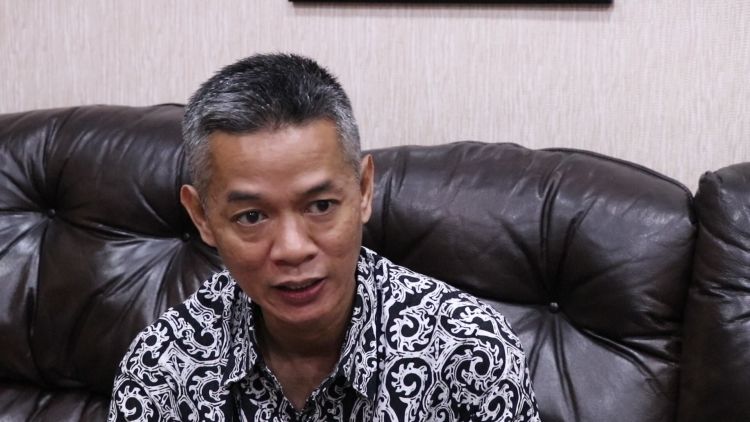
Photo: Wahyu Setiawan is one of seven commissioners heading the KPU.
Photo: Wahyu Setiawan is one of seven commissioners heading the KPU.
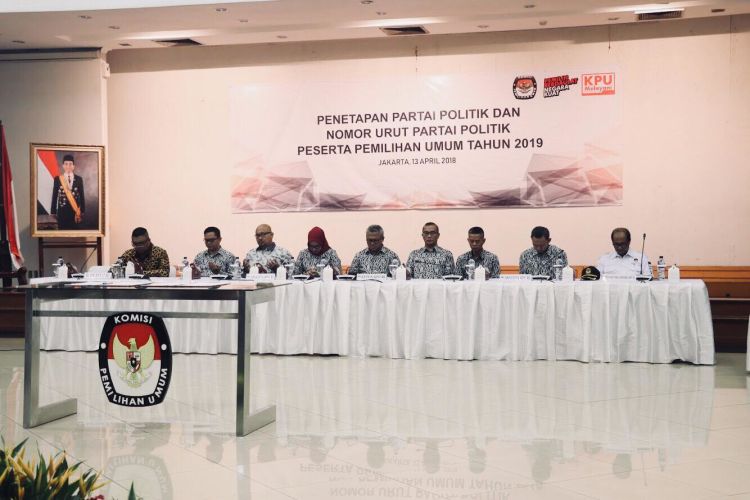
Photo: KPU Commissioners.
Photo: KPU Commissioners.
KPU commissioner, Wahyu Setiawan said that whilst pressure had already been placed upon the Indonesian Ministry of Internal Affairs to send young voters their ID’s so that they could vote, young people also had a responsibility to become more politically aware.
“The number of first-time voters is quite a lot, reaching about 20 per cent of the whole voters’ percentage. So the numbers are pretty significant for anyone," Mr Setiawan said.
“Even though some do care about politics, some are still just following their parents.”
“Voters see, ‘How am I expected to vote on someone if I don’t know whom I [should] vote for?’ In order to overcome such problem, we have two programs: socialization and educating voters,” he said.
KPU
1. Structure
The General Elections Commission (KPU) is the Indonesian body that organises the dynamics of elections. The body conducts the following: deciding which parties can contest elections, organising the voting and announcing the results and seats won in the various branches of the government.
2. Whose fault is it?
Present KPU Chairman, Arief Budiman admits that whilst political interest from young people has dropped, young adult Indonesians hold their own responsibility to remain engaged with the domestic, social and political affairs of the country.
3. Data
The interest in voting since Indonesia's last election in 2014 has dramatically dropped, leaving the KPU to figure out how to bring back majority of the voting population back to the polls in 2019.
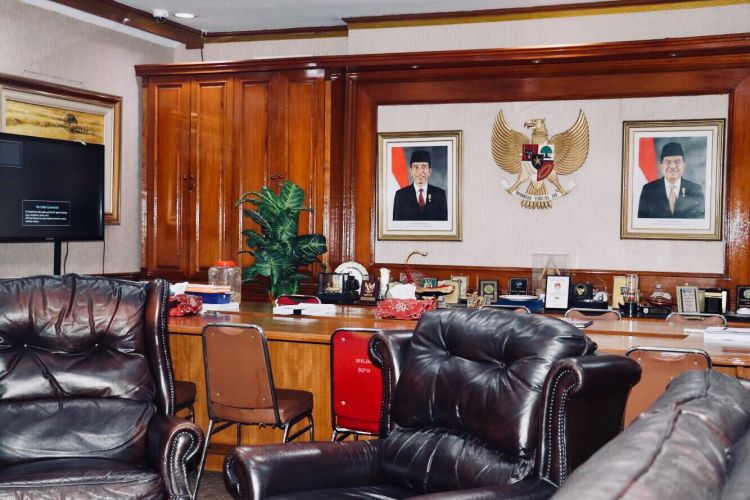
In a special interview, Chairman of the KPU, Arief Budiman said that he had compared data of political interest from young Indonesians to voting patterns of the 2014 elections and found that public assessment demonstrated a low rate of genuine rapport.
“These young people do not feel any connection to any of the current parties, which most likely coincides with low party rates of memberships,” Mr Budiman said.
“From 2014 up until now, many of the parties’ popularities haven’t changed since then. Such a lack of connection between young people and our parties, thus our young voters have become too reliant on the opinion of parents and peers.”
“For all parties and candidates wishing to partake an active role in next year’s election, their success will be highly dependent on their connection to youth support,” he said.
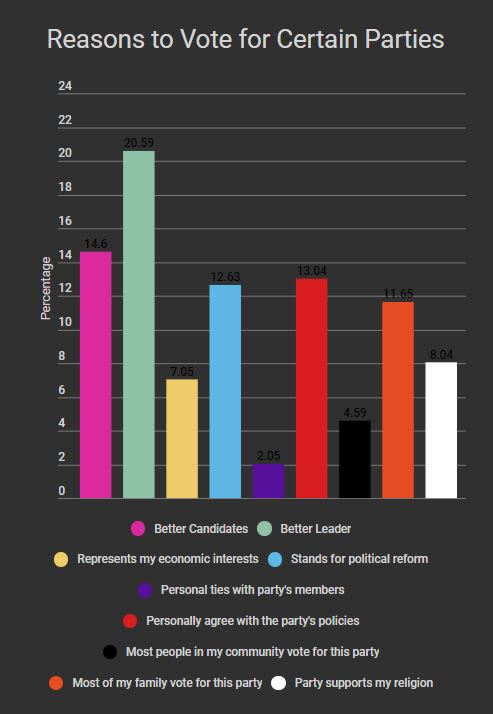
Photo: Survey conducted by Chantelle Bringas and Yasmine Raudya, 2018.
Photo: Survey conducted by Chantelle Bringas and Yasmine Raudya, 2018.
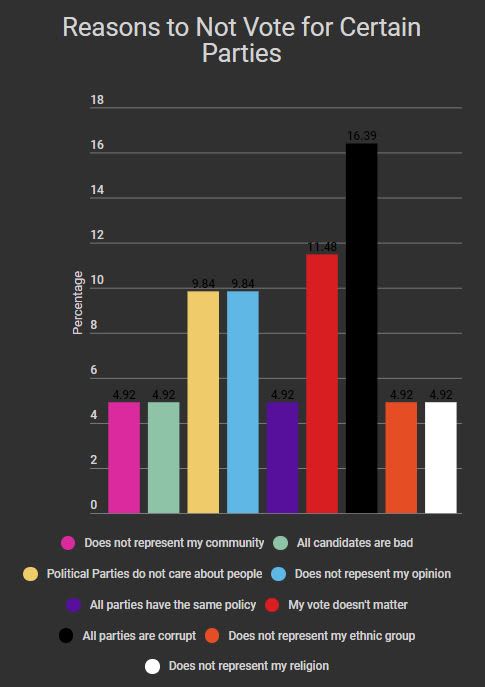
Photo: Survey conducted by Chantelle Bringas and Yasmine Raudya, 2018.
Photo: Survey conducted by Chantelle Bringas and Yasmine Raudya, 2018.
Mr Budiman later said that it was important to understand the endorsement of politics as a combination of human power and agency.
By acknowledging that politics matters, one could argue that power holds an expansive access to specific goals.
Yet he reminded that it was also up to the individual to note when the moral posturing of the one in power – is empty.
“These youngsters, if they respond well to the election and actively participate, then we don’t have to work hard to explain the importance of another election in five years to come,” Mr Budiman said.
“If they end up disappointed in the results due to their unwillingness to participate in it, then our future elections will be at a critical point. The aphorism towards politics and important issues concerning politics in general will degrade.”
Yet, there are voices who are ready to not follow a government that cannot speak the truth.
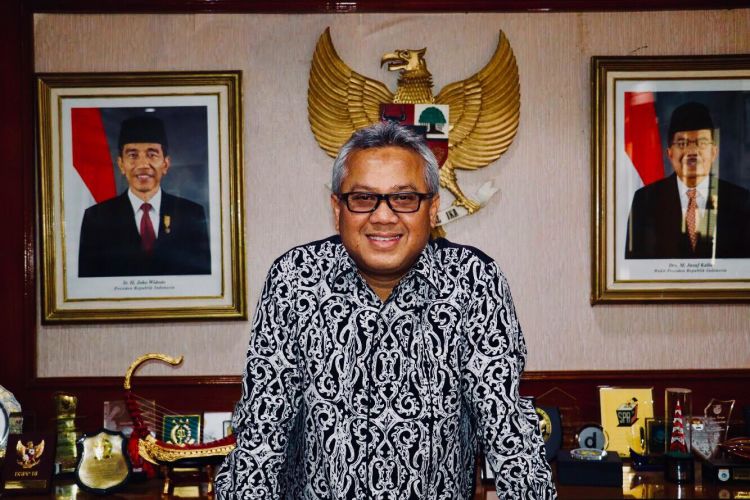
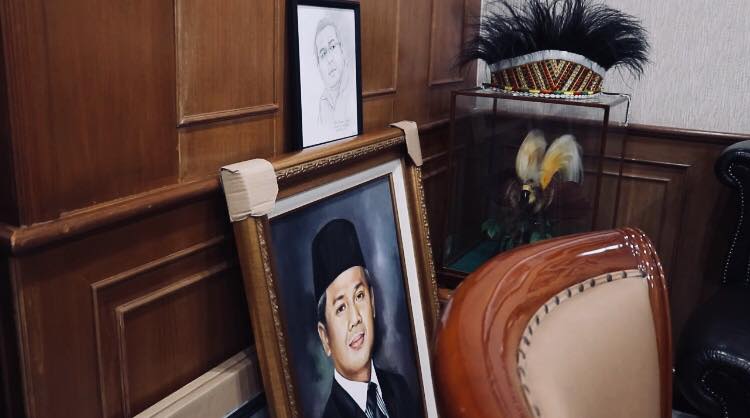
Communications and Political Science student at the University of Indonesia, Ricky Subagia, has advice for other young Indonesians turning a blind eye to prospective governments in the running.
“Today I am considering myself as a skeptical person because I think the parties do not represent the true interests of our society,” Mr Subagia said.
“It’s important for young people to get involved in politics because the policies that the government has published – will affect our lives in a direct way.”
“I think this latest corruption in Indonesia is the biggest corruption in this country and it has affected the way we see the government,” he said.
Does this, therefore, implicate that for politics to get better, we need better men?
Perhaps so.
“I see people like politics, but avoid actual political practice. They might say ‘Okay, I know the corruption, but I won’t get involved because politics is dirty or sucks.’”
He argues that there is more to politics than to just hear, see or speak no evil.
Both power and agency are political and to ignore their affairs, is to maximise your peril.
Ignoring bad politics does not make it go away.
“In the end, we will choose based on the best rationality we have, not just because of a cultural sentiment or because we come from the same province, but we because we know about their vision that they will bring when they are chosen to be our leader in our regent.”

